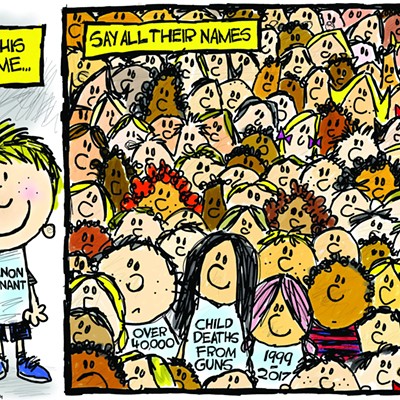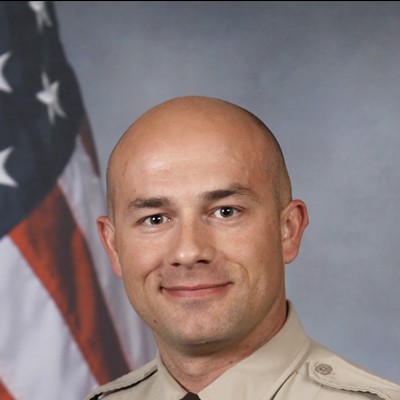Up until a few weeks ago, death remained an abstraction. If I thought about it at all, it was in some glib, rationalized manner devoid of emotional content. The only deeply personal brush with death was when my grandfather died of a heart attack.
He was standing on a street corner, smoking a Camel and talking with cronies. The attack, mercifully, felled him so he did not have to suffer the indignity of hospitals, tubes and the consciousness that his life, as he knew it, was over. Decades later, my grandmother died. By that time, I was living in Arizona, and though saddened by the event, I accepted it as life's final passage.
But I can accept nothing about my mother's condition. The call came during Super Bowl halftime. I wonder how many years will have to go by before we see the humor there. The news was brutal: My mother had been hospitalized as a result of an acute attack of pancreatitis.
A JetBlue flight out of Tucson landed me on the East Coast the next morning. For several days, I watched as my mother transitioned from intravenous fluids to a regular diet. Most days when I showed up at my mother's bedside, a nurse would tell me, a disapproving tone to her voice, that my mom continually ripped out her IV. Atta girl.
At one point, as pale and weak as I have ever seen her, she told me in an ancient Italian dialect that if she had to get any sicker, she hoped Jesus would take her. I didn't say anything, but silently agreed.
There was no possibility of my mother returning to her apartment. She needed 24-hour supervision, as she was now a serious fall risk. It seems that after a certain age, the more time spent immobile, the greater the loss of muscle tone. The hospital social worker gave us a list of "approved" nursing homes and told us to check them out and number our preferences.
In one surreal day, we checked out several and attempted to cull the horrific from the merely awful. It dawned on me that nursing homes, a forced option for many families, could be better than they are. All it would take is a medical system not driven by profit.
Serendipity brought my mom to one where the daughter of a close friend was employed as a nursing assistant. As a result, I was able to get the skinny on what to avoid and what to look for. She told me to make sure my mother remained on the first floor since inactive patients who spent their time staring into space occupied the upper levels.
During the days I spent visiting my mom and making myself obnoxious over the drugs that the facility's doctor was all too willing to prescribe to keep her quiet, I noticed the level of genuine care and compassion was greater among the workers at the bottom of the pecking order and diminished as the workers' status increased.
The aides, those angels of mercy entrusted with the most difficult tasks, were the kindest and most willing to spend time with the patients. The nurses were all efficient bustle, and the doctor was, frankly, worthless.
One day, a nursing supervisor who walked around in a white coat with a stethoscope around her neck noticed my mom's leg was swollen. She immediately called for an ultrasound to rule out a clot. When the test came back negative, and I asked her what could be causing it since my mother never suffered from swollen limbs, she just smiled and said she didn't know.
As it turned out, a prescribed medication to keep my mom docile has swollen legs as a serious side effect.
My mother is 91. As recently as her 80s, she would boast about walking four miles a day. She resisted a cane when it was deemed necessary, and she actively spurned a walker. Now she is in a wheelchair and without drugs would spend her day trying to get up and walk around.
The rehab unit is more concerned with her fall risk than her regaining the ability to ambulate, even with a walker. Safety, they claim, is their primary objective. The truth is, they don't want any nasty lawsuits.
Fielding was right: It is not death but the process of slowly dying that is terrible. It's an awful place to come to when one hopes for a swift and merciful death.






